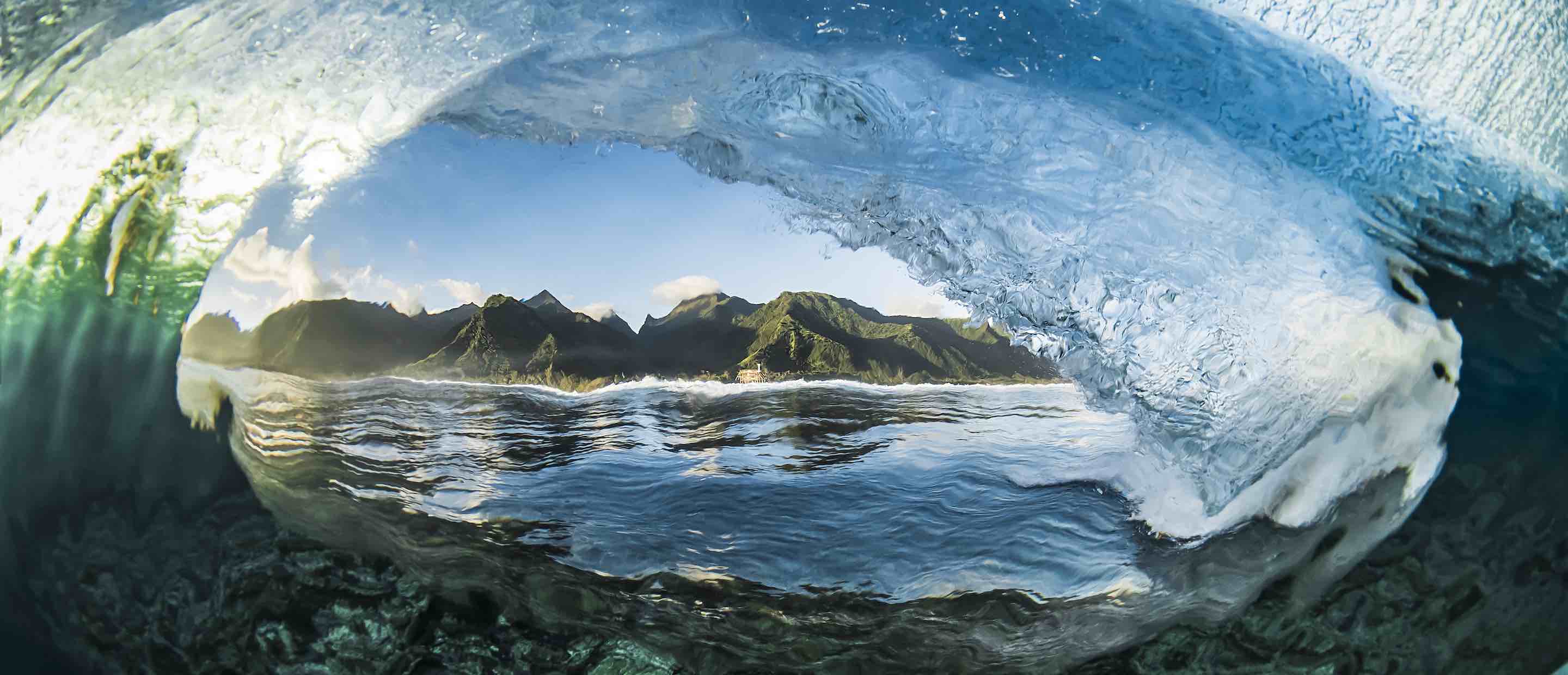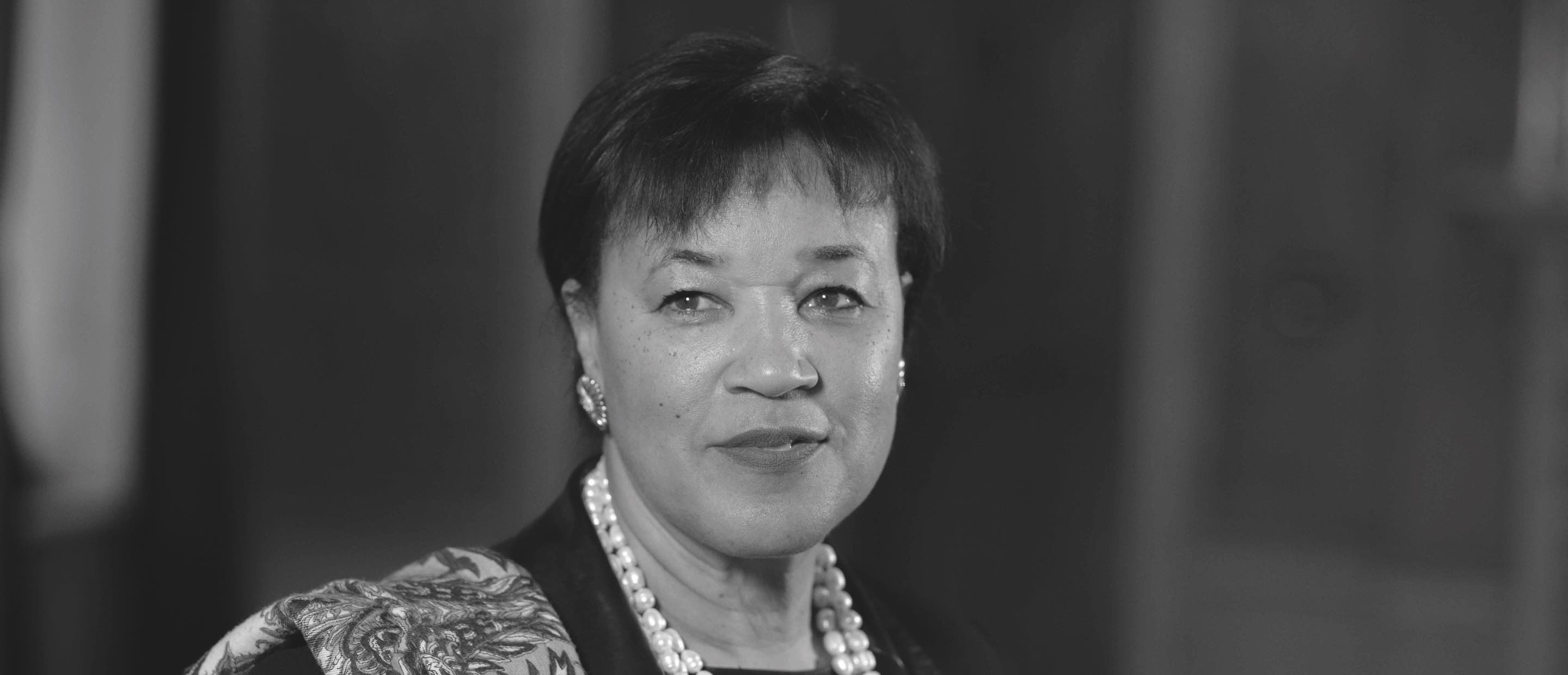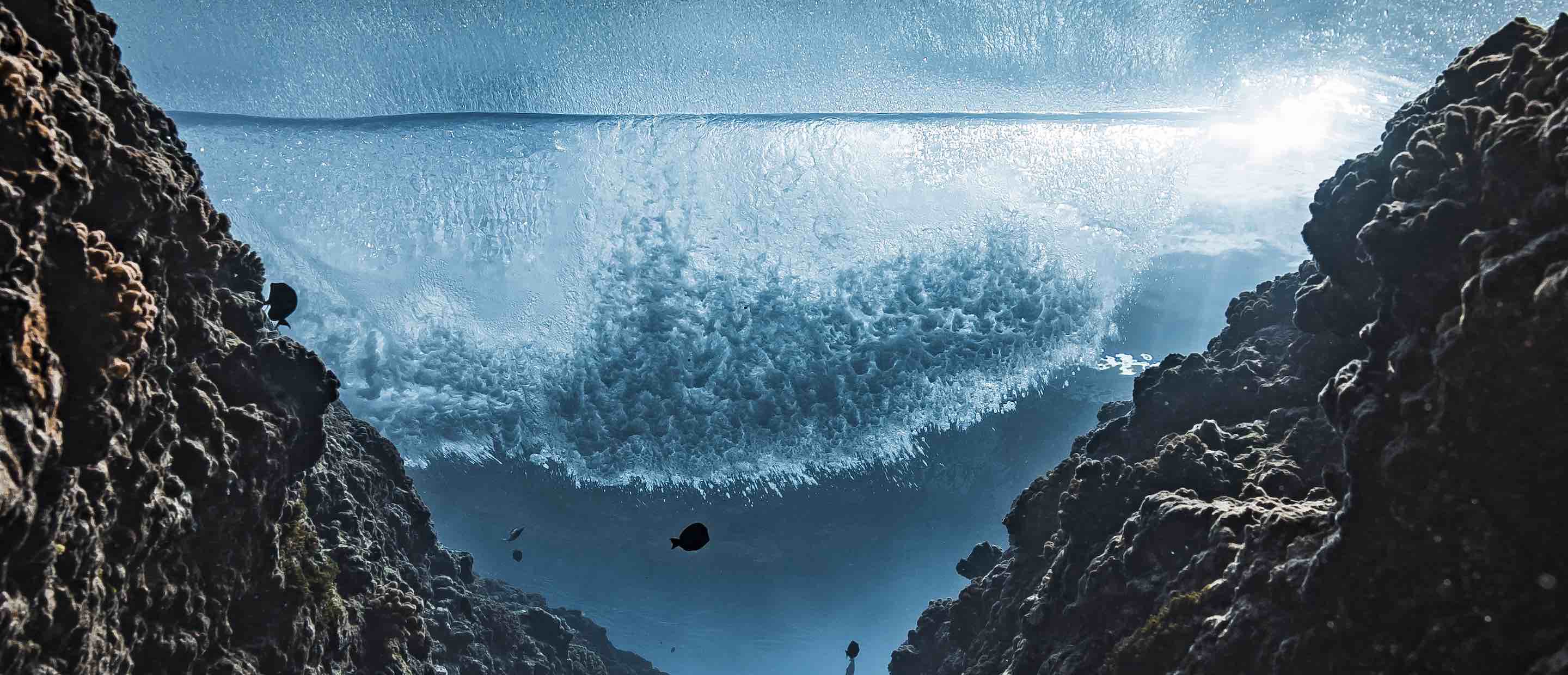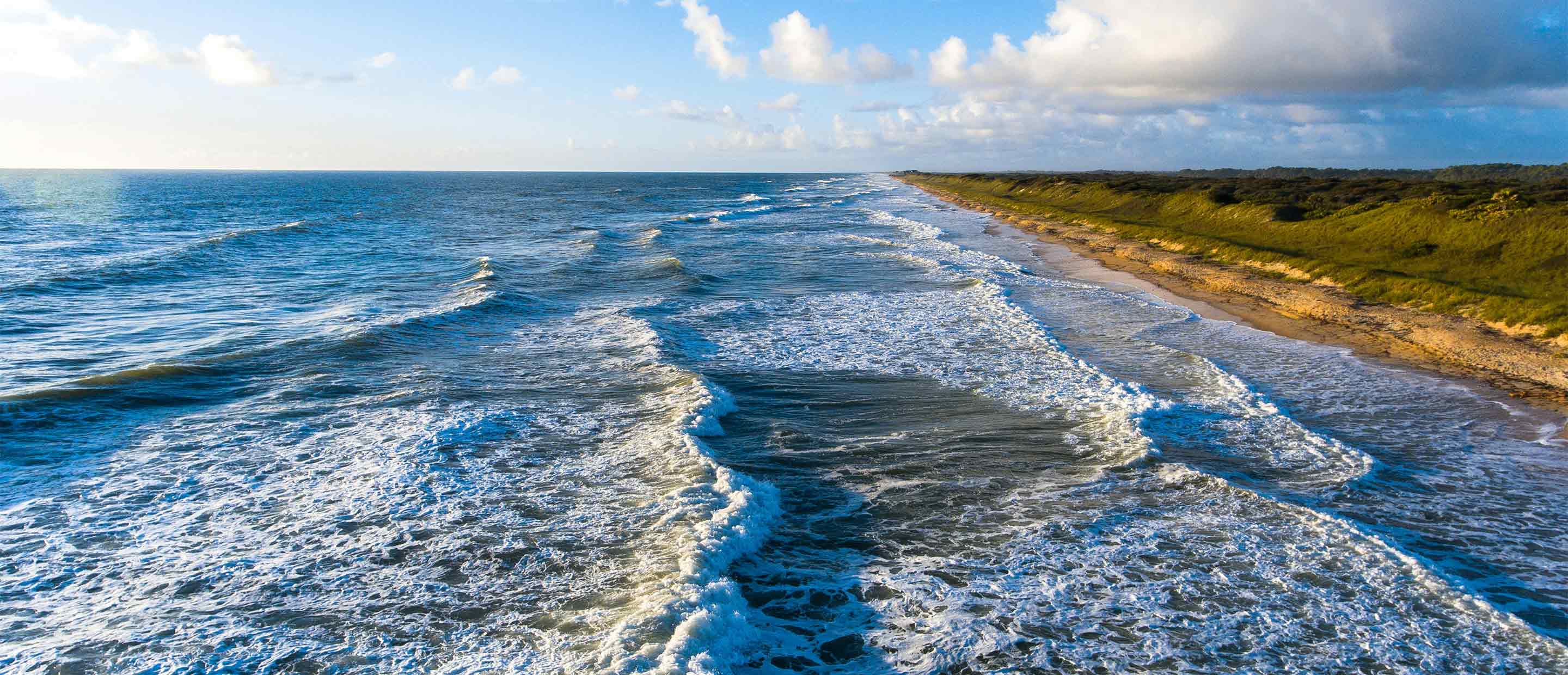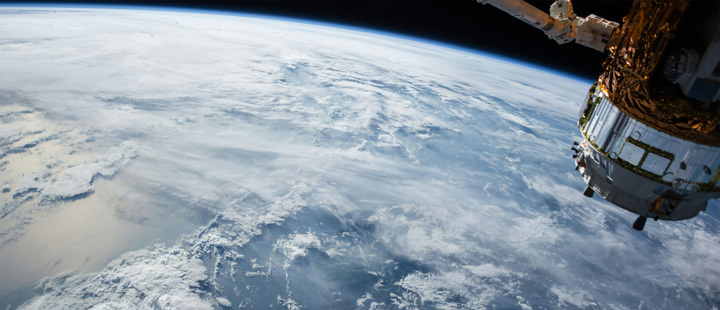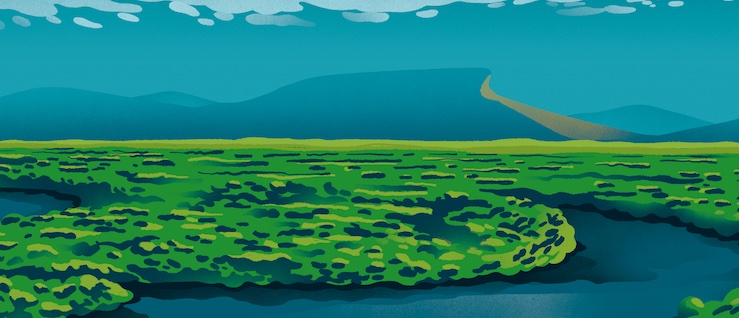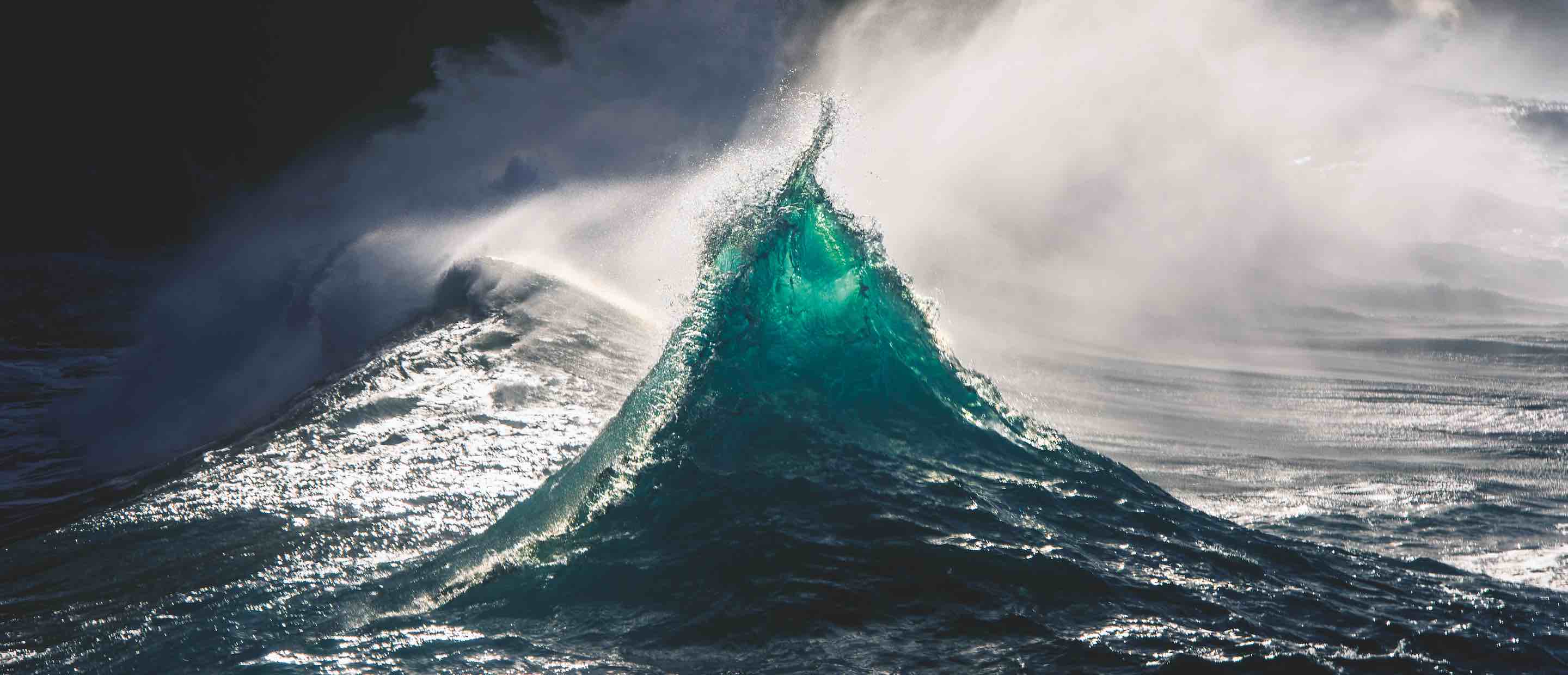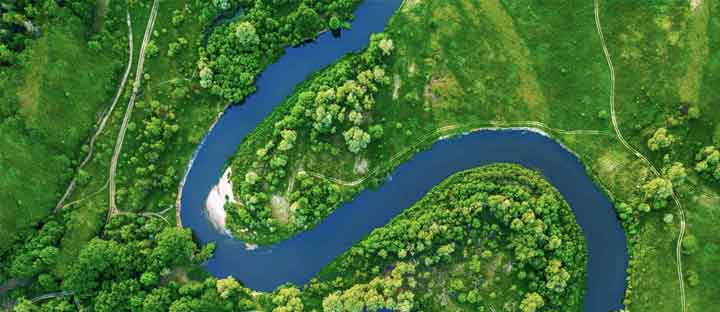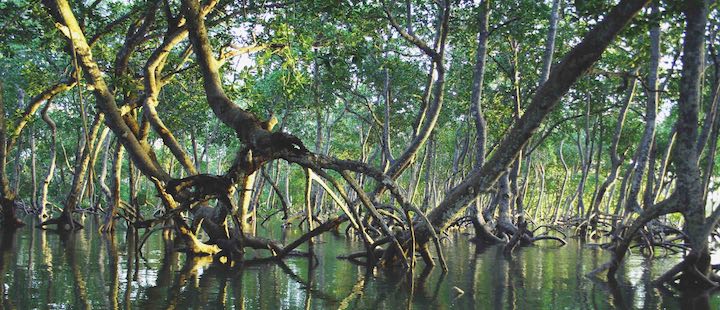Baroness Scotland, Secretary-General of the Commonwealth, has witnessed the effects of climate change on her home country, Dominica, first hand. With her unique blend of authority, experience and expertise, she tells Michael Marshall for LUX magazine how the world’s financial institutions need to get creative to help developing nations combat climate change.
As Secretary-General of the Commonwealth of Nations, a central pillar of Patricia Scotland’s diplomatic work is to help the group of 56 Commonwealth countries – many with historical links to the UK – adapt to the impacts of climate change. It is an issue she knows all about.
Scotland first became familiar with the effects of climate change in August 1979, when she was 24. In that month Hurricane David, a category 5 tropical storm, made landfall in her country of birth, Dominica, in the Caribbean. “It was one of the biggest category 5 hurricanes we’d seen,” she says. "The damage was devastating: Dominica’s capital, Roseau, was described as “resembling an air raid”. Around three-quarters of Dominica’s population were made homeless and three-quarters of banana and coconut crops were destroyed.
“I remember it so graphically,” says Scotland. “My father, who was a very skilled carpenter-builder, left the UK and went to Dominica for months to help rebuild, because people had no houses and nowhere to stay. And it was a great shock.”
Building resilience locally, mitigating climate change more broadly
At the time, it was assumed that such severe storms would occur perhaps once a lifetime. But, owing to climate change, they may be becoming more frequent, as Scotland is only too aware, following two further disasters related to climate-change hazards. In August 2015, Tropical Storm Erika caused severe damage in Dominica and neighbouring countries. Then, in 2017, came Hurricane Maria.
“It was the biggest hurricane the world had seen at that point,” remembers Scotland. Another category 5, Hurricane Maria encompassed the entire nation. “Everyone on the island was impacted,” she says. Dominica is thought of as a natural idyll with lush green vegetation, but when Scotland visited that year she barely recognised it. “Even the bark from the trees had been removed. I remember looking at one tree – it had one leaf and everything else was brown.” Decades of development, from bridges and schools to roads and houses, had been ripped from the ground and dumped in the sea.
Four decades on from her initial experience, the challenges, says Scotland, are to be ready for hurricanes and storms. “How can we build resilience while also mitigating the issue of climate change more broadly?” she asks. Today, these challenges, which also include encouraging financial institutions to step up and get creative, have become part of Scotland’s job.
"Most of the countries, unfortunately, that are most in need are least able to get access [to climate money]"
Baroness Scotland
Secretary-General of the Commonwealth
Patricia Scotland was born in Dominica in 1955, moving at the age of two with her family to London, UK, where she still lives. In the 1970s she obtained a law degree and was called to the bar, and in 1991 she made history by becoming the first black woman appointed to be what was then a Queen’s Counsel (QC), marking her as an elite lawyer.
Later, in the 1990s, Scotland entered the UK government, holding a number of posts related to law and diplomacy, including a stint as Attorney General, the government’s most senior legal adviser. Her post came to an end in 2010, when the UK government changed. Then, in 2016, Baroness Scotland took up her current role as the sixth Secretary-General of the Commonwealth, a post she holds until 2024.
The Commonwealth is a voluntary association of countries, many of which were once part of the British Empire. Established following decolonisation to maintain the links between the countries, today there are 56 members. Commonwealth states are on the front lines of climate change, says Scotland. Of the 56 countries, 33 are small states, and 25 of those are small island developing states. “We’d rather call them ‘big blue ocean states’,” she says. “Some of them have [marine] jurisdictions larger than the largest big land states.” These states are heavily exposed to sea-level rise and tropical cyclones, and many depend on marine ecosystems such as coral reefs – which are also threatened by climate change.
Extreme weather events such as hurricanes will keep happening but, as Scotland points out, we can reduce the impacts if we take action. There are two major approaches to climate change, which go hand in hand: mitigation and adaptation. Mitigation means cutting greenhouse-gas emissions as much and as fast as possible, so the climate changes as little as possible. Alongside this, adaptation means helping countries and communities become resilient to the unavoidable impacts of climate change. Communities that have adapted suffer fewer deaths and less damage from extreme weather events, and recover more quickly and thoroughly. But adaptation costs money.
The increasing cost of delaying action on climate adaptation
In 2009, developed countries promised to finance adaptation programmes in developing nations. They committed to provide $100 billion per year by 2020. “It was a bold recognition that this was necessary in order to assist those member states that had not contributed to the creation of the crisis,” says Scotland. “This was a real question of equity and fairness, because they were the ones who were going to have to adapt and mitigate a situation that they had not created.”
However, the promise was broken: even in 2023, annual adaptation funding is far short of $100 billion. “Although the world made that commitment, it didn’t actually identify how the $100 billion was going to be raised,” says Scotland. Worse, some governments were still contesting the reality of climate change. “That seems unreal now in 2023, but it was very real in 2009.”
And today, the adaptation bill has gone up, partly because of inflation, and partly because the delay has meant more urgency and more severe impacts. A 2021 UN Environment Programme report estimated just how much money is required annually for environmental projects, including adaptation. The bill comes to more than $500 billion per year. Other estimates are even higher. The bill for climate adaptation and other environmental needs will keep going up the more we delay, but there is a silver lining, says Scotland. Investing in adaptation reduces future costs and will enable the global economy to grow more. “This is a real invest-to-save,” she says.
Why a complex challenge calls for multiple financial strategies
The challenge is mobilising the money. It’s a multi-pronged challenge, but innovative financial strategies are a “really important” part of the solution, says Scotland. Several strategies have been proposed, and she says governments and funders should cast a wide net. “It’s not either-or, it’s all of them. People tend to say, ‘we’ll do this or we’ll do that’. It’s not ‘or’, it’s ‘and, and, and’.”
One useful form of finance is debt restructuring. Many developing countries have significant debts that reduce their ability to pay for new projects and make it harder for them to raise money from elsewhere. Countries like Dominica took out loans to pay for infrastructure, but when the hurricanes destroyed the infrastructure the government still had to pay the debts. “You still have that high level of indebtedness, but then you have to build back better [to become resilient],” says Scotland. “The costs are two or three times higher, but you’re burdened with the last debt with no relief.” This creates a “terrible cycle”.
To tackle this issue, multiple initiatives are helping countries manage or reduce their debt. During the COVID-19 pandemic, the G20 countries created a Debt Service Suspension Initiative. This relieved the debts of dozens of low-income countries, helping them to fight the pandemic, but it expired in December 2021. Meanwhile, the Commonwealth offers its member states a number of tools to manage their debts. The more that low-income countries can control their debts, the more money they will be able to raise for adaptation.
Supporting the cost of climate adaptations through debt relief
A related concept is a debt-for-nature swap. Here, a country has some of its debt written off, and, in exchange, the government commits to undertake environmental-protection initiatives, which can include climate adaptation. The Seychelles, a Commonwealth member, is a prominent success story. In the 2010s, the country set out to convert $21.6 million of its national debt into nature programmes. These included financing for climate adaptation by improving management of coasts, coral reefs and mangroves – all of which protect against tropical storms and rising seas, and provide other ecosystem services. The country also protected some of its waters.
Scotland says it’s essential to help countries obtain the climate money that is out there. “Most of the countries, unfortunately, that are most in need are least able to get access,” she says. Often, they are told that they do not have enough empirical data to support their application, or that they haven’t followed arcane bureaucratic procedures. Scotland compares it to Waiting for Godot. In response, the Commonwealth has created a Climate Finance Access Hub, which provides expert advisers to help countries navigate the application processes. “We’ve already delivered into the hands of our small developing member states $70 million,” says Scotland. "The pandemic caused delays, but more is coming. “We have over $420 million worth of projects in the pipeline.”
For Scotland, it’s creative and collaborative projects like these that will ensure countries adapt to climate change. “I believe we can do this,” she says. “This is a matter of choice.”
Perhaps it should be no surprise that an organisation like the Commonwealth, which has such a mix of countries among its members, is ahead of the curve on tackling climate change. Back in 1989, three years before the Rio Earth Summit, where countries agreed in principle to stop climate change, the Commonwealth issued the Langkawi Declaration on the Environment. The declaration highlighted “the serious deterioration in the environment” and called on governments to commit to “sustainable development”. More than three decades later, everyone else is catching on.
Three actions to galvanise climate adaptation and mitigation
by Baroness Scotland of Ashal
- Work holistically
“Take a holistic, regenerative approach to climate change. What we’re trying to do [in the Commonwealth] is implement an integrated system. I’ve said often it’s like a petri dish for the world. Any of the things we can grow in our Commonwealth, which work and we can test out, we can replicate anywhere.” - All sectors work together
“We have to recognise this is a multisectoral approach. This cannot be done without the private sector, which has huge power and opportunity. This is a moment where it can be the difference we need to deliver the public good.” - Reform the international financial system
“We have to change the financial infrastructure to deliver the change we need. Using GDP [gross domestic product] as the sole criterion is not going to work. We need a universal understanding of sustainability. I would say get behind the Commonwealth’s Universal Vulnerability Index or the UN’s Multidimensional Vulnerability Index.”
Main image: Teahupoo Bubble, 2 August 2017, Teahupoo, Tahiti, French Polynesia. © Ben Thouard
This article first appeared in the Spring/Summer 2023 issue of LUX magazine. This issue features the fifth in a series of Deutsche Bank Wealth Management/LUX supplements about our ocean and its importance to both the environmental and economic wellbeing of the planet.
